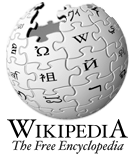Wikipedia and Britannica about as accurate in science entries, reports Nature
Wednesday, December 14, 2005

An investigation performed by the scientific review, Nature, on Wikipedia and Britannica science entries, found that the two encyclopedias have similar degrees of accuracy in their content.
Nature used peer reviewing to compare Wikipedia and Britannica's coverage of science. In this study, entries were chosen from the websites of Wikipedia and Encyclopaedia Britannica on a broad range of scientific disciplines and sent to a relevant expert for peer review. Each reviewer examined the entry on a single subject from the two encyclopedias without being told which article came from which encyclopaedia. The reviewers were asked to check for errors, but were not told where the information came from.
Among 42 entries tested, the difference in accuracy was not significant: the average science entry in Wikipedia contained around four inaccuracies; Britannica, about three. In the pairs of articles reviewed, eight serious errors such as misinterpretations of important concepts were detected, four from each encyclopaedia. Reviewers also found many factual errors, omissions or misleading statements: 162 in Wikipedia and 123 in Britannica. Additionally, it was found that Wikipedia articles are 2.6 times as long as Britannica articles, meaning that there is a lower error/ommision per word ratio in Wikipedia.
The main criticism about Wikipedia was on its readability, with several reviewers commenting that the articles they read were poorly structured and confusing.
As well as comparing the two encyclopedias, Nature surveyed more than 1,000 Nature authors and found that although more than 70% had heard of Wikipedia and 17% of those consulted it on a weekly basis, less than 10% help to update it.
Wikipedia founder Jimmy Wales welcomed the study. "We're hoping it will focus people's attention on the overall level of our work, which is pretty good," he told BBC News.
Source
- "Wikipedia survives research test" — BBC News Online, December 15, 2005.
- Jim Giles. "Internet encyclopaedias go head to head" — Nature (journal), December 14, 2005.
- AP. "Journal: Wikipedia as accurate as Britannica" — CNN, December 15, 2005.
- "Assessing Wikipedia's Accuracy" — NPR, December 15, 2005
See also

